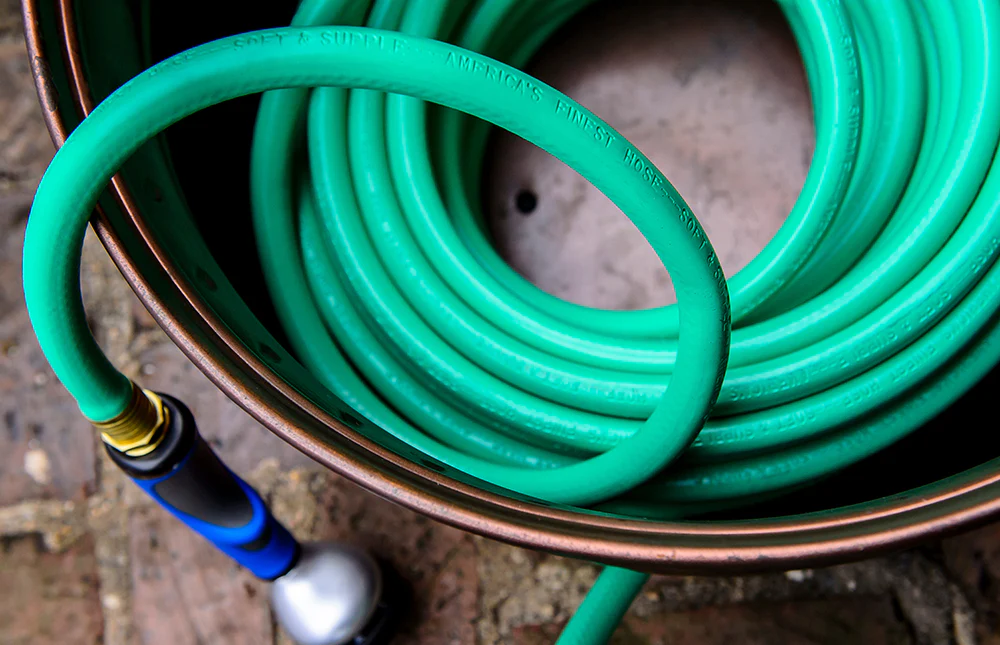
When it comes to plumbing and irrigation systems, choosing the right materials can significantly impact efficiency, durability, and ease of use. Two of the most common options are flexible hoses and rigid pipes. While both serve the primary function of transporting water, each has unique advantages and disadvantages. In this article, we’ll explore the differences between Flexible Hoses and rigid pipes, helping you determine which option is best for your specific needs.
Understanding Flexible Hoses
Flexible hoses are made from materials such as rubber, PVC, or reinforced fabric. They are designed to bend and twist, allowing for easy maneuverability in various environments. Here are some key benefits of using flexible hoses:
- Versatility: Flexible hoses can be used for a variety of applications, from gardening and car washing to plumbing and industrial processes. Their adaptability makes them suitable for both residential and commercial settings.
- Ease of Installation: Because they can easily navigate tight spaces and awkward angles, flexible hoses simplify installation processes. They can be quickly connected to fixtures or appliances without the need for extensive plumbing adjustments.
- Lightweight and Portable: Flexible hoses are generally much lighter than rigid pipes, making them easier to handle and transport. This feature is particularly advantageous for gardening tasks or when working in confined spaces.
- Kink and Tangle Resistance: Many modern flexible hoses are designed to be kink-resistant, reducing frustrations associated with tangled lines and ensuring a steady water flow.
- Expandable Options: Some flexible hoses come with an expandable design, allowing them to stretch significantly when filled with water. This feature provides convenience for storage and maneuverability in gardens.
Understanding Rigid Pipes
Rigid pipes, typically made from materials like PVC, metal, or copper, maintain a fixed shape and size. They are often used in permanent plumbing installations or applications requiring high durability. Here are some advantages of using rigid pipes:
- Durability: Rigid pipes are generally more durable and long-lasting than flexible hoses. They can withstand high pressures, harsh chemicals, and extreme weather conditions, making them ideal for industrial applications.
- Stable Water Flow: Rigid pipes provide consistent water flow without the risk of kinking or tangling. This stability is crucial for plumbing systems where water pressure needs to be maintained.
- Less Maintenance: Once installed, rigid pipes often require less maintenance than flexible hoses. They are less susceptible to wear and tear, reducing the need for frequent replacements.
- Customization Options: Rigid pipes can be cut to specific lengths and configured to fit unique layouts, making them suitable for complex plumbing systems or extensive irrigation setups.
Comparing the Two: Key Considerations
When deciding between flexible hoses and rigid pipes, consider the following factors:
- Application: Identify the specific needs of your project. For temporary tasks like gardening or washing cars, flexible hoses may be ideal. For permanent plumbing installations or industrial applications, rigid pipes are typically the better choice.
- Space Constraints: If you’re working in tight spaces or need to navigate around obstacles, flexible hoses offer the maneuverability needed to reach every area without hassle.
- Budget: While flexible hoses tend to be more affordable upfront, consider the long-term costs. Rigid pipes may require a larger initial investment but could save you money on maintenance and replacements over time.
- Climate and Environment: Consider the conditions where the hoses or pipes will be used. If you’re in an area with extreme temperatures or corrosive environments, the durability of rigid pipes may be more suitable.
- Installation and Labor Costs: Flexible hoses are typically easier and quicker to install, which can save on labor costs for DIY projects or professional installations. Rigid pipes may require more time and expertise for installation.
Conclusion
Choosing between Flexible Hoses and rigid pipes ultimately depends on your specific needs, preferences, and the context in which they will be used. Flexible hoses offer versatility, ease of use, and portability, making them ideal for temporary or light-duty applications. On the other hand, rigid pipes provide durability and stable water flow for permanent installations and demanding environments.
By carefully considering the factors outlined above, you can make an informed decision that ensures you select the right option for your project. Whether you go with the flexibility of hoses or the sturdiness of pipes, understanding the strengths and weaknesses of each will help you achieve the best results for your watering or plumbing needs.